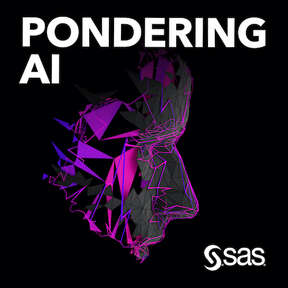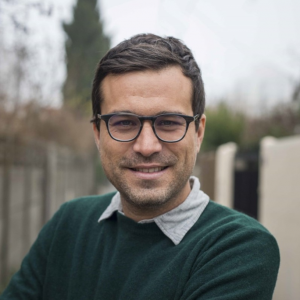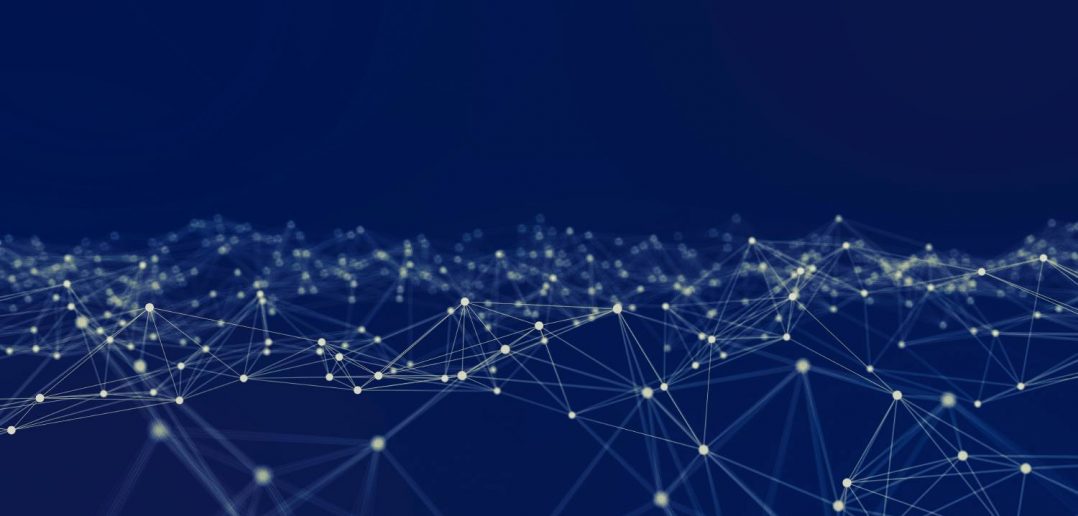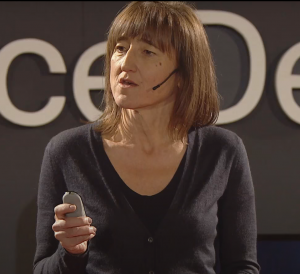There is no shortage of challenges associated with the deployment of AI: a lack of access to infrastructure, a lack of skills, and new legislation meant to enforce the responsible use of this evolving technology. But the most consequential questions facing us are innately human. Namely, ensuring human agency, safety and resiliency remains intact as these AI systems are deployed at scale has become central

The Pondering AI podcast has been the place for a diverse group of innovators, activists and educators to talk about how AI can be deployed fairly and safely.
As we close out 2021, we decided to highlight some of this year's conversations with experts and spotlight their thoughts on what to expect from the AI space in 2022 and beyond.
Existing in harmony with machines
 Your (Personal) Digital Twin with Dr. Valérie Morignat PhD
Your (Personal) Digital Twin with Dr. Valérie Morignat PhD
Dr. Valerie Morignat Ph.D. is a Top 100 DIET Champion and a member of the DataEthics4All Think Tank Community. She is the Founder & CEO of Intelligent Story, a San Francisco-based consulting firm. Don't expect AI and robots to replace us in the future, she says. Instead, view the two working in harmony.
"Do we want to live entirely in virtual reality tomorrow? No, there are lots of things that we still want to experience in the sensory realm of the physical world. Do we want to automate everything? No, because there are lots of tasks that actually are beneficial to people. So even if AI can do them, well, maybe it's better to assign those tasks to people so they can learn more. We need to design for human augmentation. Whatever we design, the goal is not to make us completely passive. The goal is to always function with a model that I call the model of the centaur, a hybrid model where we have human intelligence that compounds with artificial intelligence, and intelligent design. And that's really the triad here."
Inclusion is one thing, zero exclusion is another
The Path to Zero Exclusion with Yonah Welker
In this episode, the founder of the Intersection of Tech and Society Yonah Welker traced their personal journey from isolation to advocacy through technology. They also exposed the limits of "inclusion" initiatives and noted the importance of assistive technology that addresses autism, neurodiverse individuals, and people with physical disabilities.
"For instance, when we work on women in AI, we focus on trying to bring more women into the AI field. But we should try to focus on not just the creation of something for women, but by women…One of the winners of our recent hackathons demonstrated that many autoimmune disorders, mental health, and many other topics are not typically covered. And it's not just about exclusion of gender. It's exclusion of a particular type of thinking."
Look to humans for true transformation
 Beyond Bias in AI with Shalini Kantayya
Beyond Bias in AI with Shalini Kantayya
Shalini Kantayya is a storyteller, social activist, and filmmaker who explores challenging social topics with empathy and humor. Shalini’s film Coded Bias debunks the myth that AI algorithms are objective by nature. Kantayya sat down with Kimberly Nevala to share a proven recipe for moving the dial on ethical AI and explained why technologies that will define our future should adopt it.
"Models are essentially sorting us into these crude categories based on past behavior and based on people like us or that it perceives like us. And I think that sort of crude logic of how algorithms work prevent it, inhibit it from having the kind of transformative power of creating a new future that you're talking about. And I think to create a new future, that might require some intelligence. And I would define intelligence differently than I think that math conference in 1956 where they said what artificial intelligence is. And I would question any system that doesn't have ethics, that doesn't have morals, that doesn't have empathy or compassion. I would question any system that doesn't have those qualities as being truly intelligent. And so I think it should be in the hands of human beings to shape a more transformative future."
Providing children with a safe digital space
Growing Up with AI with Baroness Beeban Kidron
Baroness Beeban Kidron is an award-winning filmmaker. She's a Crossbench Peer in the UK House of Lords, the founder and chair of the 5Rights Foundation and is leading the fight to protect children's rights and well-being in the digital realm. Services of the future will need to layout in simple terms how they will look and function when accessed by children, and Kidron says this should go far beyond improving the experience of their favourite apps.
"...this is an entirely engineered system. It is human made. It's optimized for advertising. Well let's optimize it for well-being. You could optimize it for zebras if you want it to. The point is we have to decide as a society what kind of digital world we want. And the point is...that [children]actually are determining a different kind of human interaction and we really must ask ourselves whether it's worth paying the price. And I say, in relation to children, no."
Moving from simulation to real climate action
 Is AI-Driven Sustainability Sustainable with Vincent de Montalivet
Is AI-Driven Sustainability Sustainable with Vincent de Montalivet
During this informative discussion, Vincent de Montalivet discussed using AI to help the planet, enabling sustainable business models, creating green value chains, the debate over green AI, progress to date and the work still to come.
"I think we can definitely find a way to implement AI more efficiently… We can also think about AI in a more decentralized way, by leveraging edge computing, etc. Which I think also reduces the amount of data that is sent across all the systems instead of having something centralized. We need to think about more green modeling when it comes to data and AI. But when it comes to leveraging AI for sustainability initiatives, I don't think we're there yet."
The only certainty is continued change
The technology powering AI systems is present and powerful, and there is tremendous value in discussing them. AI plays a massive role in our daily lives, but whether that technology helps sustain and create our best selves or embodies unhealthy attitudes is not a technical matter. That responsibility falls squarely to humans.
Related: Preparing for the next disruption -- how analytics will play a role in 2022Far from unwitting or unwilling recipients of these technologies, we are the architects of both AI and its effects – good and bad, intended or unintended. These forward-thinking leaders, along with the other stellar guests, challenge and encourage us to remember that we – as individuals and a collective – have both the agency and the ability to architect our best future. A future that is enabled but not defined by technology.
Hosted by Strategic Advisor at SAS, Kimberly Nevala, you can listen to and download episodes of PonderingAI wherever you get your podcasts from!



